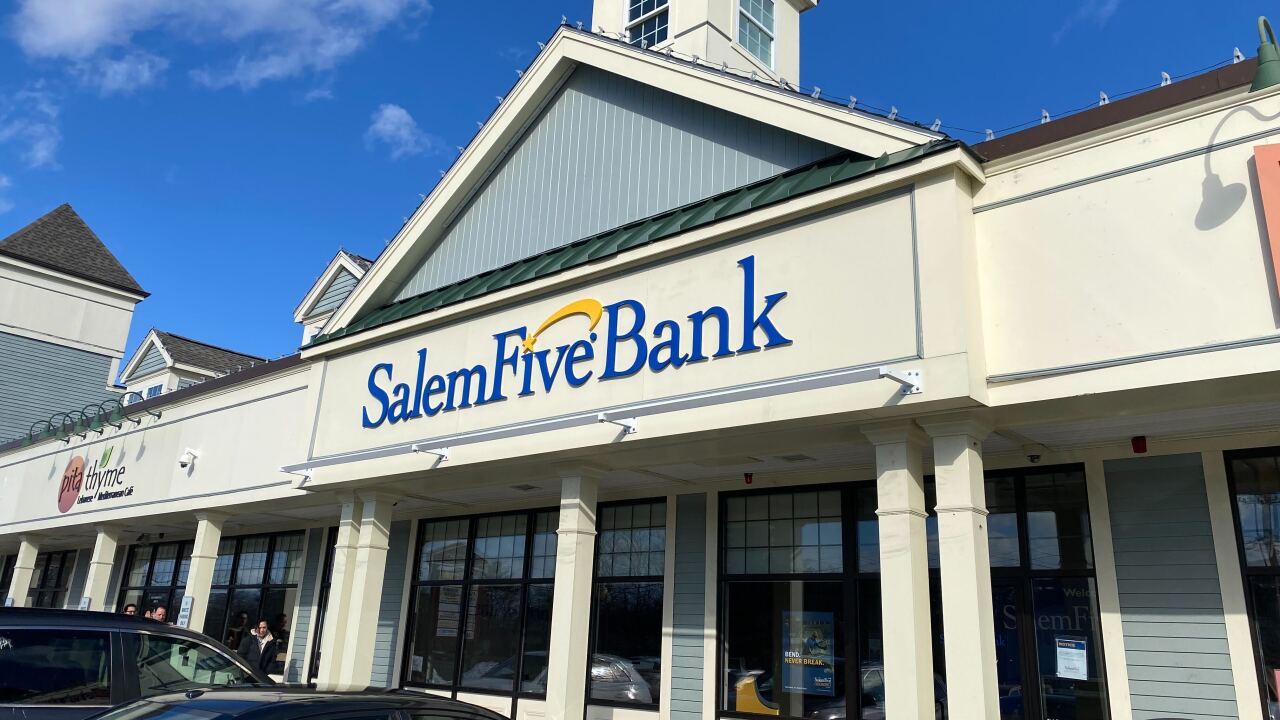
UPDATE: This article includes the reaction of Mexico's bank regulator to the U.S. allegations.
Mexico's bank regulator said it was temporarily stepping in to run CIBanco SA and Intercam Banco SA in a bid to protect customers following accusations by U.S. authorities that the financial institutions were potentially facilitating money laundering by drug cartels.
The National Banking and Securities Commission (CNBV) said in a statement Thursday that it was replacing management at the two banks "to safeguard the rights of these institutions' savers and clients, given the potential implications for these banks of the measures announced by the United States Department of the Treasury."
The Treasury's Financial Crimes Enforcement Network (FinCEN) slapped CIBanco, Intercam and brokerage Vector Casa de Bolsa SA with orders that will prohibit certain fund transmissions with U.S. entities, saying they potentially laundered proceeds from illicit drug trafficking.
The move comes amid risks that clients could be spooked by the allegations even as President Claudia Sheinbaum responded defiantly to the U.S. measures, arguing she's seen no evidence to support the designations.
CNBV said in its statement that it had confidence in "the soundness and resilience of the Mexican financial system and will continue to work in ongoing coordination to foster its stability, integrity, and proper functioning."
"Financial facilitators like CIBanco, Intercam, and Vector are enabling the poisoning of countless Americans by moving money on behalf of cartels, making them vital cogs in the fentanyl supply chain," Treasury Secretary Scott Bessent said in the statement. He vowed to use "all tools at our disposal to counter the threat posed by criminal and terrorist organizations trafficking fentanyl and other narcotics."
Vector "categorically" rejected U.S. authorities' claims in a statement, saying it has been operating in line with the highest regulatory standards. "The transactions reported correspond to ordinary transactions with legally established companies," Vector said.
Local media reports indicate that Vector is owned by Alfonso Romo, a multimillionaire businessman who served as chief staff to former President Andres Manuel Lopez Obrador early in his term and was the leftist populist's main link with the Mexican business community. Finance Minister Édgar Amador Zamora also worked at Vector, according to his profile on the government's website.
Intercam issued a statement saying it "categorically denies any involvement of this institution in any illicit practices, particularly money laundering, and we reiterate our commitment to transparency and legality."
CIBanco said it "does not maintain links with activities outside the law" and complies with all regulations. After review by Mexican authorities, "no elements can be identified that compromise CIBanco's operation or actions," it said in a statement.
FinCEN said the designations are its first under the Fentanyl Sanctions Act and the Fend Off Fentanyl Act, which give Treasury extra power to target money laundering tied to the trafficking of fentanyl and other synthetic opioids, including by cartels. Still, the moves fall short of stronger sanctions that the Office of Foreign Assets Control can impose, barring any business dealings with designated firms and individuals.
U.S. officials are ramping up efforts to tackle cartel finances following their
The three Mexican institutions "have collectively played a longstanding and vital role in laundering millions of dollars on behalf of Mexico-based cartels and facilitating payments for the procurement of precursor chemicals needed to produce fentanyl," Deputy Treasury Secretary Michael Faulkender said during a call with media.
Mexico's Finance Ministry said in a statement it had asked U.S. authorities for evidence against the firms. Mexico's regulator is conducting a review of the three firms in question, it said.
"We want to be clear: If we have conclusive information proving illicit activities by these three financial institutions, we will act to the full extent of the law," the Finance Ministry said. "However, to date, we have no information in this regard."
Cartel finance
CIBanco, a commercial bank with about $7 billion in assets at the end of last year, provided financial services that helped groups including the Beltran-Leyva cartel, the Jalisco New Generation cartel and the Gulf Cartel traffic opioids, according to FinCEN.
In one example, an employee for the bank knowingly helped create an account to launder $10 million for a Gulf cartel member, FinCEN said.
CIBanco was also instrumental in facilitating payments for Mexico-based companies to procure precursor chemicals, FinCEN said in its
Intercam, with about $4 billion of assets, also provided financial services that helped Mexican cartels traffic opioids, FinCEN said. It
Intercam has a fraud policy on its website where it states it recognizes the "significant threat" of corruption and internal fraud. It's committed "to taking proactive measures to avoid, detect and adequately respond to any internal fraudulent activity," according to its website.
Both banks are relatively small within Mexico. CIBanco is the country's 20th largest financial institution, meaning the impact of prohibiting certain fund transmissions will be negligible, according to FinCEN.
All three financial institutions are closely held. Shares of publicly traded Mexican banks were little changed on the news, and the peso held its gains against the dollar, suggesting that the moves weren't seen by investors as a serious threat to Mexican financial markets.
Precursor chemicals
For its part, Vector helped facilitate money laundering by cartels including the Sinaloa Cartel and Gulf Cartel, according to FinCEN. The firm with about $11 billion of assets also helped procure precursor chemicals from China for illicit purposes, it said.
FinCEN highlighted an example where a Sinaloa Cartel money mule "employed various methods to launder $2 million from the United States to Mexico through Vector."
Vector also allegedly handled some
"Under President Trump, the Treasury Department has taken and will continue to take historic action to ensure that cartels and drug traffickers cannot abuse the U.S. dollar to launder drug money and profit off the poisoning of Americans," Faulkender said on the call with media.
Faulkender was




